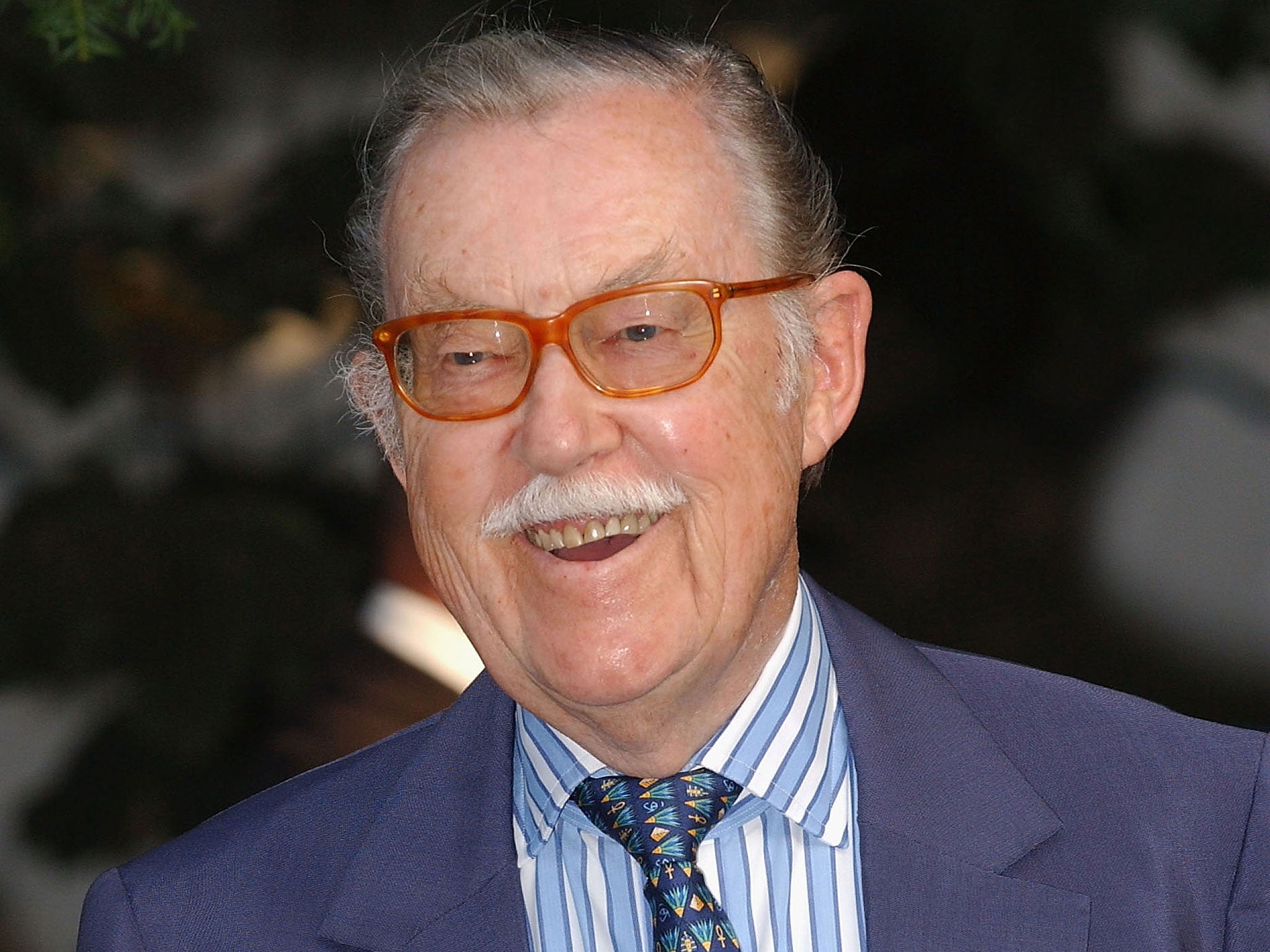Sun sets on Whicker's World as veteran travel broadcaster Alan Whicker dies of pneumonia at age of 87
Long-time partner: 'He had a wonderful life and I was lucky to have shared it with him'

Your support helps us to tell the story
From reproductive rights to climate change to Big Tech, The Independent is on the ground when the story is developing. Whether it's investigating the financials of Elon Musk's pro-Trump PAC or producing our latest documentary, 'The A Word', which shines a light on the American women fighting for reproductive rights, we know how important it is to parse out the facts from the messaging.
At such a critical moment in US history, we need reporters on the ground. Your donation allows us to keep sending journalists to speak to both sides of the story.
The Independent is trusted by Americans across the entire political spectrum. And unlike many other quality news outlets, we choose not to lock Americans out of our reporting and analysis with paywalls. We believe quality journalism should be available to everyone, paid for by those who can afford it.
Your support makes all the difference.Alan Whicker went to the ends of the earth on behalf of a generation that could barely dream of a hop across the Channel, let alone a trip around the world.
The broadcaster, who has died aged 87, combined a formidable intellect with gentle charm – and a military bearing that proved invaluable when tackling gangsters and despots on their home turf. His groundbreaking reports transformed television journalism, with the unintended consequence of turning Whicker into the first celebrity TV journalist.
“The right place at the right time, I suppose,” is how he summed up the secret of his success. In fact, he often deliberately went to the wrong places at the right time in order to expose the world’s rogues.
Whicker’s forensic analysis was allied with tenacity. He went to Haiti to stake out the dictator, Papa Doc Duvalier, finally making contact by sending the president a telex demanding a meeting. The resulting film about a country “which has less to celebrate than any nation on earth” revealed the horror of the regime of Papa Doc.
“You hear his presence in the silence of his subjects,” Whicker said chillingly.
Whicker learned his craft in the heat of conflict – first in the Second World War, in which he took the German surrender in the city of Milan, and later in the Korean War where his death was mistakenly reported. “Unkilled. Uninjured. Onpressing,” read his terse cable to the news desk.
He left a secure job with the Exchange Telegraph news agency for a pioneering current affairs programme, Tonight, in 1957. “My great leap was to go from EC4, which was Fleet Street, to W10, which was the BBC,” he told The Independent three years ago.
While other colleagues focused on the technological revolution, and in particular the space race, Whicker became an on-screen anthropologist reporting on the astonishing pace of social change – reporting from California on embryonic feminism and gay rights.
His rapport with viewers was rewarded with his own series, Whicker’s World, which became the first real travelogue. He offered a profound cultural perspective as well as the exuberence of new experience - such as flagging down an express on the Alaska Railroad. “After stopping a train in Alaska, the rest of your life is an anti-climax,” he said.
Whicker’s status as a national media treasure was confirmed when he became the subject of an early Monty Python spoof, “Whicker Island”. He took the portrayal of an isle entirely populated by moustachioed investigative journalists as a compliment: “I was very flattered. I felt that they weren’t being acid about me, they were being kind. I was having the piss taken out of me by experts.”

Watch Apple TV+ free for 7 days
New subscribers only. £8.99/mo. after free trial. Plan auto-renews until cancelled

Watch Apple TV+ free for 7 days
New subscribers only. £8.99/mo. after free trial. Plan auto-renews until cancelled
His broadcasting work spanned six decades. Whicker’s archive will continue to enrich lives, providing an enduring insight into the profound changes of the late 20th century.
“How did I manage it? Just good luck, I reckon.”
Join our commenting forum
Join thought-provoking conversations, follow other Independent readers and see their replies
Comments